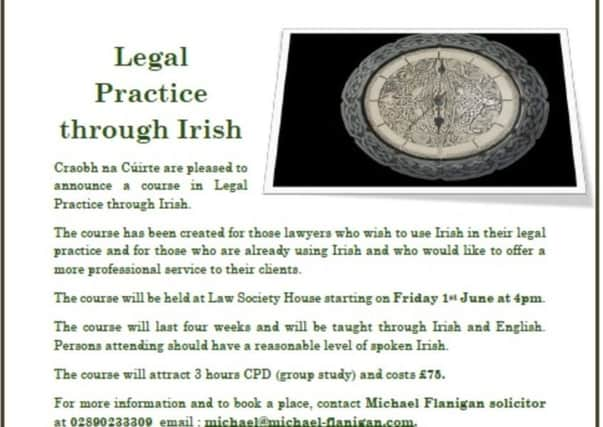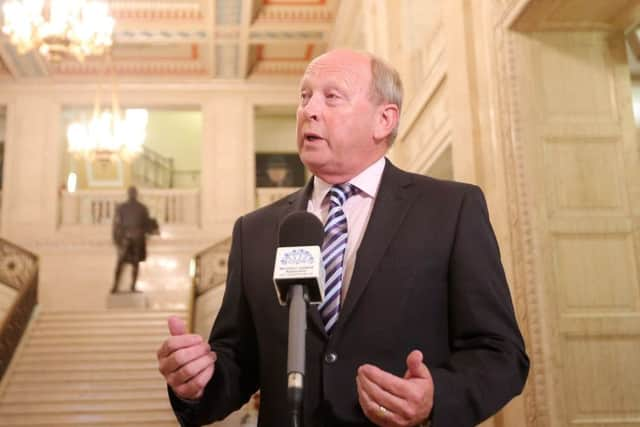Law Society should '˜catch itself on' over Irish language lawyer course


Jim Allister, TUV leader and qualified barrister, said the Law Society must not align itself to a “divisive campaign to get Irish into the courts” after details about the course – called ‘Legal Practice Through Irish’ – emerged.
Another legal source, whose name the News Letter is withholding, echoed this sentiment, and questioned how well it sits with the current long-standing legal bar on the use of the language in the court system.
Advertisement
Hide AdAdvertisement
Hide AdThe Law Society itself responded that it will recognise language courses “particularly if it has an emphasis on technical legal language in order to aid the client’s understanding”, and it is “in that context” it is recognising this course.


The news has emerged aftert Sinn Fein leader Mary Lou McDonald last month claimed that the abortive deal Sinn Fein and the DUP had been working on contained the suggestion of allowing Irish to be used in court – something which has not permitted since 1737.
At the root of the controversy is the fact solicitors in Northern Ireland are required to complete a compulsory 15 hours of Continuing Professional Development (CPD) work each year.
This work could involve attending seminars on developments in data protection regulations for example, or studying details about conveyancing rules; the idea, the Law Society said, is to “ensure that members keep up to date with current developments so that the profession continues to operate to the highest standards”.
Advertisement
Hide AdAdvertisement
Hide AdOn Wednesday, a newsletter was emailed to all solicitors in the Province from the society, which included a notification that a group called Craobh na Cuirte has announced a course titled ‘Legal Practice Through Irish’ at Law Society House in Belfast this June.


This has also been posted on the Law Society webiste.
The £75 four-week course is open to those with “reasonable level” of Irish, and who wish to use the language “in their legal practice”.
It states that the course will be counted as three hours of CPD work by the Law Society.
One solicitor to whom the News Letter has spoken said that “the use of Irish in the legal sector is of no tangible benefit to either professionals or members of the public”.
Advertisement
Hide AdAdvertisement
Hide AdThey added that they are “deeply concerned” that “by accrediting the course as CPD the Law Society is actively encouraging and seeking to grow the use of Irish in the legal profession in this jurisdiction”.
Mr Allister, MLA for North Antrim, said: “The Law Society needs to catch itself on and not ally itself with the divisive campaign to get Irish into the courts by running a course like this.”
He added that the ban on Irish is “for good reason”, and “the administration of justice will be hindered by court hearings being multi-lingual”.
“Often evidence is judged not just by what is said but how it is said,” he said.
Advertisement
Hide AdAdvertisement
Hide Ad“How much of that will be lost when a translator comes between a witness and those hearing their evidence?”
LAW SOCIETY RESPONSE
“The Law Society of Northern Ireland supports solicitors through its Continuing Professional Development programme in the delivery of legal services to their clients.
“For example, recently the society published 36 of its information leaflets in nine different languages.
“This is an example of seeking to support solicitors in advising clients who come from a diverse background of nationalities and languages.
Advertisement
Hide AdAdvertisement
Hide Ad“Where there are courses being arranged in any language that will support a solicitor in the delivery of their legal advice and assistance to a client, the society will recognise such, particularly if it has an emphasis on technical legal language in order to aid the client’s understanding of the issues and the advice that they are receiving.
“This particular course is recognised by the Law Society of Northern Ireland in that context.”